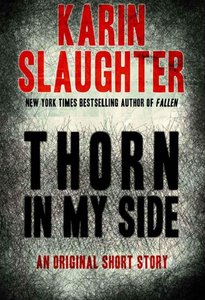The main protagonists in this short story by Tess Gerritsen, which only came out as an eBook and you can download from here for free, are the usual suspects: detective Jane Rizzoli and -“the queen of the dead”- medical examiner Maura Isles.
The events of this case take place during one of the coldest winters in history in Boston, where the local police discovers the corpse of a young woman in a deserted church. Kimberly Rayner, as is the victim’s name, looks undernourished and seems to have been strangled to death. While Rizzoli and Isles observe the scene of the crime, the most outstanding object of which is an open casket, they soon come to realize that apart from the cops there’s another presence there; that of a scared young man who when spotted runs for his life with Jane in pursuit, who’s bound to get him. Of course, when arrested, he instantly becomes the prime suspect, even though he insists that he’s innocent. The man that goes by the name Lucas Henry says that he truly loved Kimberly, that they were soul mates and that all he ever tried to do was help her out. Truth be told, if someone ever saw the two of them standing next to each other, he would have no choice but believe his words, since they looked almost the same: deathly pale and ghost-like. Besides, according to Lucas their physique had to do with the fact that they were vampires. Not that they were attacking people in order to drink their blood, nothing like that; they just lived on… air, and blood, provided to them by some butcher or from a friend or two who got it from a blood bank.
His story really sounds crazy, outrageous, but the police besides his presence at the scene of the crime, has no evidence whatsoever against him, while Dr. Isles is of the opinion that the two of them were suffering from a diagnosed illness which caused them to have shared delusions.
But if it wasn’t Lucas the one that killed the girl then who was? Well, the events are about to take a dramatic turn, which will bring Jane face to face with an extremely dangerous situation. Thankfully though, her good friend, the doctor, will once again come to save the day, as she will discover who the real perp is, using her usual means: science. The solution to the riddle will prove to be just as strange, as the case itself.
This is a well-written story, which will undoubtedly satisfy the fans of this unique team of investigators.






